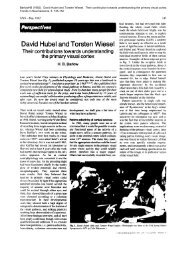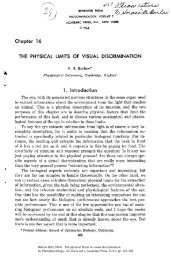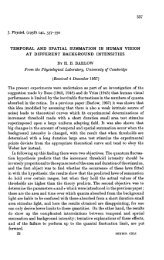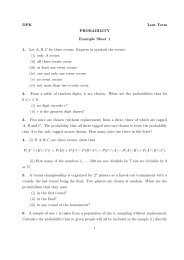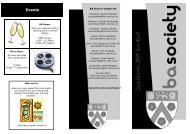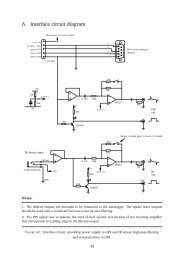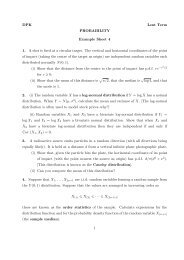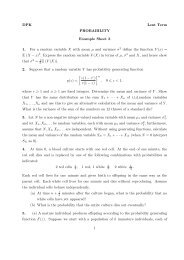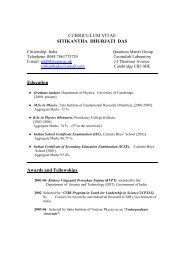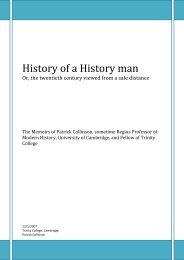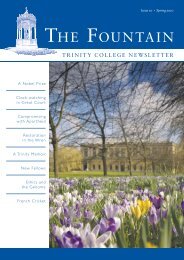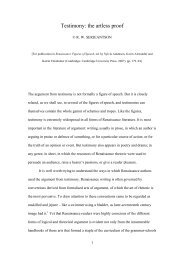Hume's General Rules - Serjeantson
Hume's General Rules - Serjeantson
Hume's General Rules - Serjeantson
You also want an ePaper? Increase the reach of your titles
YUMPU automatically turns print PDFs into web optimized ePapers that Google loves.
<strong>Serjeantson</strong>-16<br />
judge aright’. 53 Thus while works of logic commonly took the form of sets of rules the<br />
philosophical status of the rule itself was not so often considered.<br />
In general, early modern philosophers manifested a striking reluctance to<br />
reflect upon the nature of the rules that they crammed into their writings. They were<br />
normative, but unexamined. This tendency is particularly evident in the Cartesian<br />
tradition. Descartes’s first sustained piece of philosophical writing was his Regulae ad<br />
directionem ingenii (first published in Latin in 1701 and hence potentially accessible<br />
to Hume). Like Hume, Descartes clearly regarded the function of his rules as being to<br />
‘direct the judgment’, since his first regula is ‘The aim of our studies should be to<br />
direct the mind with a view to forming true and sound judgments about whatever<br />
comes before it’. 54 But he is reticent about the status such rules themselves have<br />
within his philosophy. He did note with curiosity in his earliest surviving papers (the<br />
so-called Cogitationes privatae, unpublished until 1859) that he was ‘making use of<br />
definite rules’ in his thinking. 55 Nonetheless, subsequent explicit reflection on their<br />
function in the Regulae is restricted to comments such as this one: ‘a large number of<br />
rules is often the result of inexperience in the teacher’. 56 It is notable, however, that in<br />
his later writings Descartes placed much less emphasis on philosophical ‘rules’. In the<br />
Meditationes (1641)--which was one of the works of metaphysics Hume<br />
recommended to his friend Michael Ramsey as preparatory reading for understanding<br />
the Treatise 57 --Descartes is not concerned with formulating rules at all.<br />
53 Isaac Watts, Logic; or, The Right Use of Reason, in the Enquiry after Truth. With a variety of rules<br />
to guard against error, in the affairs of religion and human life, as well as in the sciences (Chiswick:<br />
Thomas Tegg, 1828), p. 183 (2.4).<br />
54 René Descartes, Regulae ad directionem ingenii, in Œuvres de Descartes, ed. C. Adam and P.<br />
Tannery, 12 vols (Paris: Vrin, 1964-76), vol. 10, pp. 359-472, p. 359. Translation from Descartes,<br />
<strong>Rules</strong> for the direction of the mind, trans. Robert Stoothoff, Dugald Murdoch, and John Cottingham, in<br />
The Philosophical Writings, 3 vols (Cambridge: Cambridge University Press, 1985), vol. 1, pp. 7-78, p.<br />
9.<br />
55 Descartes, Cogitationes privatae, in Œuvres, vol. 10, p. 214.<br />
56 Descartes, Regulae, in Œuvres, vol. 10, p. 461 (regula 18). Translation from Descartes, ‘<strong>Rules</strong>’, in<br />
Philosophical Writings, vol. 1, p. 71.<br />
57 Mossner, Life of Hume, p. 627.



